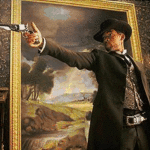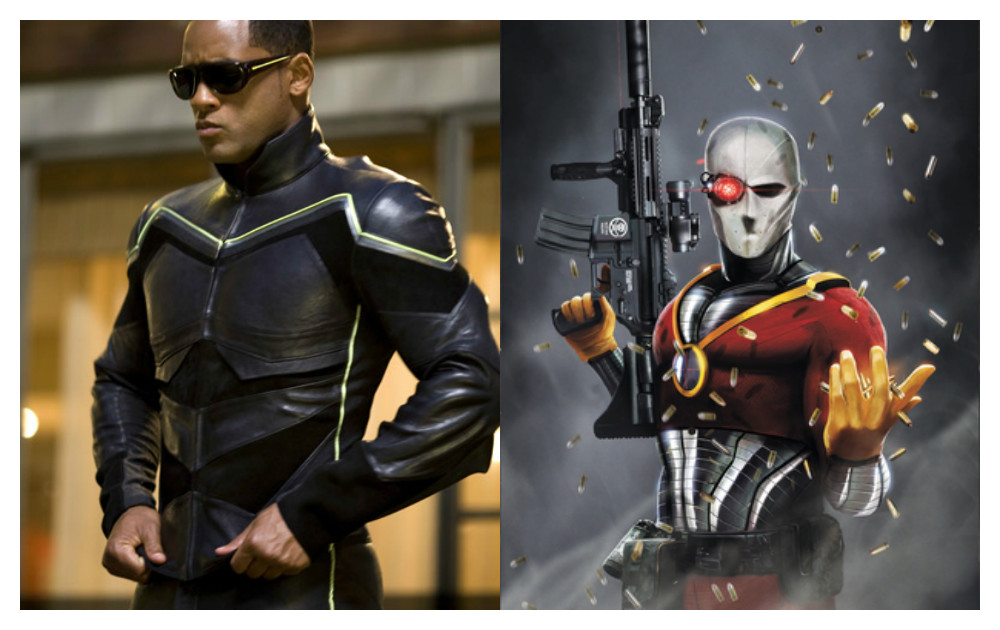What do the film adaptations of I Am Legend, Wild, Wild West, Hancock and the upcoming Suicide Squad movie all have in common? They all feature Will Smith, an African American actor intent on proving to Hollywood—and the rest of the world for that matter—that race doesn’t matter. The only problem is, every time he plays a character in a movie that was previously portrayed by a Caucasian, he reignites the argument about whether or not he—or any other African American—should only play roles that are specifically written for an African American…whatever that means. Does Will Smith have a valid point? Does creativity have a color?
It’s Been Done Before
 While those who oppose Will Smith playing characters previously portrayed by Caucasians haphazardly give him all the credit for being a trailblazer, he in fact is not the first to do so. In the late 50s and 60s, classic actors Harry Belafonte and Sir Sydney Poitier, for example, both shocked audiences when they portrayed characters in movies that were previously depicted as Caucasian in the novels in which their movies were based on. At the time, when Harry Belafonte played Ralph Burton in The World, The Flesh and The Devil and Sir Sydney Poitier played Jason Higgs in The Lost Man, the plots of the story were noticeably modified from the novels in which the movies were based to seemingly reflect an African American perspective and garner more acceptance of an African American playing such roles. However, it was still progress nonetheless.
While those who oppose Will Smith playing characters previously portrayed by Caucasians haphazardly give him all the credit for being a trailblazer, he in fact is not the first to do so. In the late 50s and 60s, classic actors Harry Belafonte and Sir Sydney Poitier, for example, both shocked audiences when they portrayed characters in movies that were previously depicted as Caucasian in the novels in which their movies were based on. At the time, when Harry Belafonte played Ralph Burton in The World, The Flesh and The Devil and Sir Sydney Poitier played Jason Higgs in The Lost Man, the plots of the story were noticeably modified from the novels in which the movies were based to seemingly reflect an African American perspective and garner more acceptance of an African American playing such roles. However, it was still progress nonetheless.
Fast forward to the 80s where one of the most successful attempts to date to blur the lines of color in creativity was comedic actor Eddie Murphy and his portrayal of Axel Foley in the first and subsequent Beverly Hills Cop movies; which were originally written for action star Sylvester Stallone. Though he experienced great success with the Beverly Hills Cop movies, Eddie Murphy went on to play a variety of roles, in effect blurring the color lines and forcing audiences to see him as a comedic actor, not just an African American actor. He did so without forcing the issue, a trait that many trailblazers often possess.
Are We There Yet?
Although actors like Will Smith continue to push the envelope with respect to playing characters that were originally written for or portrayed by Caucasians, it doesn’t necessarily mean that everyone is ready to accept such changes. Just last month when the cast of the new Suicide Squad movie was announced, it was revealed that Will Smith will be playing yet another character originally portrayed—in the DC comics—as a Caucasian and yet again Will Smith found himself at the center of another casting controversy. This time, it was comic book aficionados who openly objected to the African American actor playing the leader of the Suicide Squad, Deadshot.
 The same thing happened nearly twenty years ago when Will Smith was cast in the lead role as James West in the movie Wild, Wild West. Not many fans—generally older and familiar with the characters and storyline—were particularly fond of the idea of Will Smith assuming the role made famous by actor Robert Conrad. Conrad himself openly voiced his disapproval of the casting choice: stating that it was “just wrong” and then going further to liken Will Smith’s portrayal of James West to him playing Dr. Martin Luther King, Jr.
The same thing happened nearly twenty years ago when Will Smith was cast in the lead role as James West in the movie Wild, Wild West. Not many fans—generally older and familiar with the characters and storyline—were particularly fond of the idea of Will Smith assuming the role made famous by actor Robert Conrad. Conrad himself openly voiced his disapproval of the casting choice: stating that it was “just wrong” and then going further to liken Will Smith’s portrayal of James West to him playing Dr. Martin Luther King, Jr.
Then again, maybe Will Smith and others may be misconstruing the motives of disapproving fans as it is also quite possible that fans have—and may continue—to object to his portrayal of certain characters simply because it is Will Smith. If that is indeed the case, Will Smith may have in fact succeeded in the mission of proving race doesn’t matter; by inadvertently uniting audiences against him and his acting abilities.

